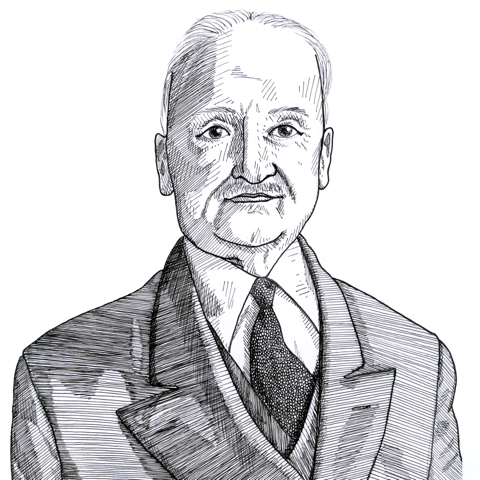
The 11th Day of Christmas: Mises on the gold standard and peace on earth (1934)
Found in: The Theory of Money and Credit
In 1934 in the midst of the great depression the Austrian economist Ludwig von Mises (1881-1973) contrasted the economic policies of Fascist Europe and New Deal America with those of the liberal 19th century. The latter was one of the international division of labor, free trade, and the gold standard. The former advocated national autarky, severe trade restrictions, and government fiat currency. Mises believed that only the latter would permit prosperity and peace on earth to prevail:
Money & Banking
It is not only the monetary and credit system that is out of gear, but the whole economic system. For years past, the economic policy of all countries has been in conflict with the principles on which the nineteenth century built up the welfare of the nations. International division of labor is now regarded as an evil, and there is a demand for a return to the autarky of remote antiquity. Every importation of foreign goods is heralded as a misfortune, to be averted at all costs. With prodigious ardour, mighty political parties proclaim the gospel that peace on earth is undesirable and that war alone means progress. They do not content themselves with describing war as a reasonable form of international intercourse, but recommend the employment of force of arms for the suppression of opponents even in the solution of questions of domestic politics. Whereas liberal economic policy took pains to avoid putting obstacles in the way of developments that allotted every branch of production to the locality in which it secured the greatest productivity to labor, nowadays the endeavor to establish enterprises in places where the conditions of production are unfavorable is regarded as a patriotic action that deserves government support. To demand of the monetary and credit system that it should do away with the consequences of such perverse economic policy, is to demand something that is a little unfair.